

Education Climate Resilience
A new green chapter in the Kyrgyz Republic’s 100 years of education
In 1924, less than 5% of people living in the Kyrgyz Republic – at the time the Kara-Kyrgyz Autonomous Oblast within the Union of Soviet Socialist Republics (USSR) – were literate. By 1936, according to Soviet official estimates, the literacy rate had climbed dramatically to between 70% and 80%. And by 2019, statistics from the Kyrgyz National Statistical Committee show this has risen to 99.6%.
The success of this can be attributed to intersecting foundational reforms including the alphabetisation of the Kyrgyz language in the early twentieth century, Soviet Moscow’s “indigenisation” policy, and the introduction of compulsory primary education, for example. The education system’s most enduring legacy, however, has been its ability to adapt to changing and varying contexts – and this year the Kyrgyz Republic is celebrating ‘100 years of education’.
With a looming climate emergency, the Kyrgyz Republic’s education system is today adapting to address ecological objectives. This is the focus of a collaborative partnership between government, the Aga Khan Foundation, and schools and teachers across Kyrgyzstan in their implementation of the Schools2030 programme.
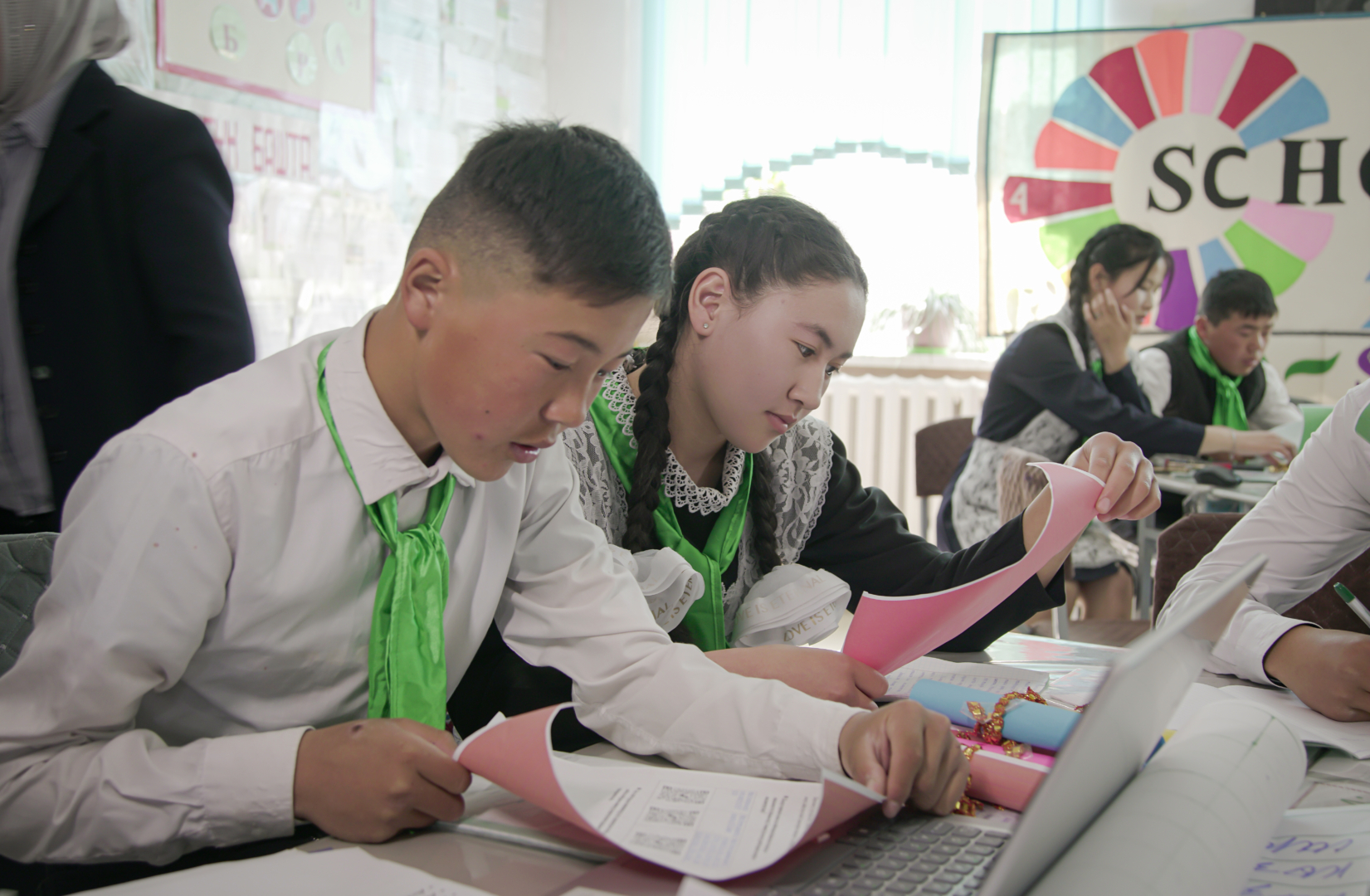
A natural evolution in education reform
For Nazira Zholdoshbekova, Programme Manager for Education at Schools2030 in the Kyrgyz Republic, the partnership of the Kyrgyz Ministry of Education and Science with Schools2030 – a diverse coalition including educators, school leaders, civil society, researchers and international organisations – represents a “natural evolution [of the education system] rooted in this historical context”.
Teachers were seen as integral actors in the implementation of educational policies, albeit with less agency in shaping them.Nazira Zholdoshbekova, Programme Manager for Education at Schools2030 in the Kyrgyz Republic
While Soviet-era education was characterised by a centralised approach, with top-down policies and directives and with an emphasis on standardisation and uniformity, collaboration between policy makers and teachers was foundational to the system.
“Teachers were seen as integral actors in the implementation of educational policies, albeit with less agency in shaping them,” says Zholdoshbekova. “They were tasked with executing the curriculum, fostering ideological adherence and moulding the minds of the younger generation according to the state’s vision.
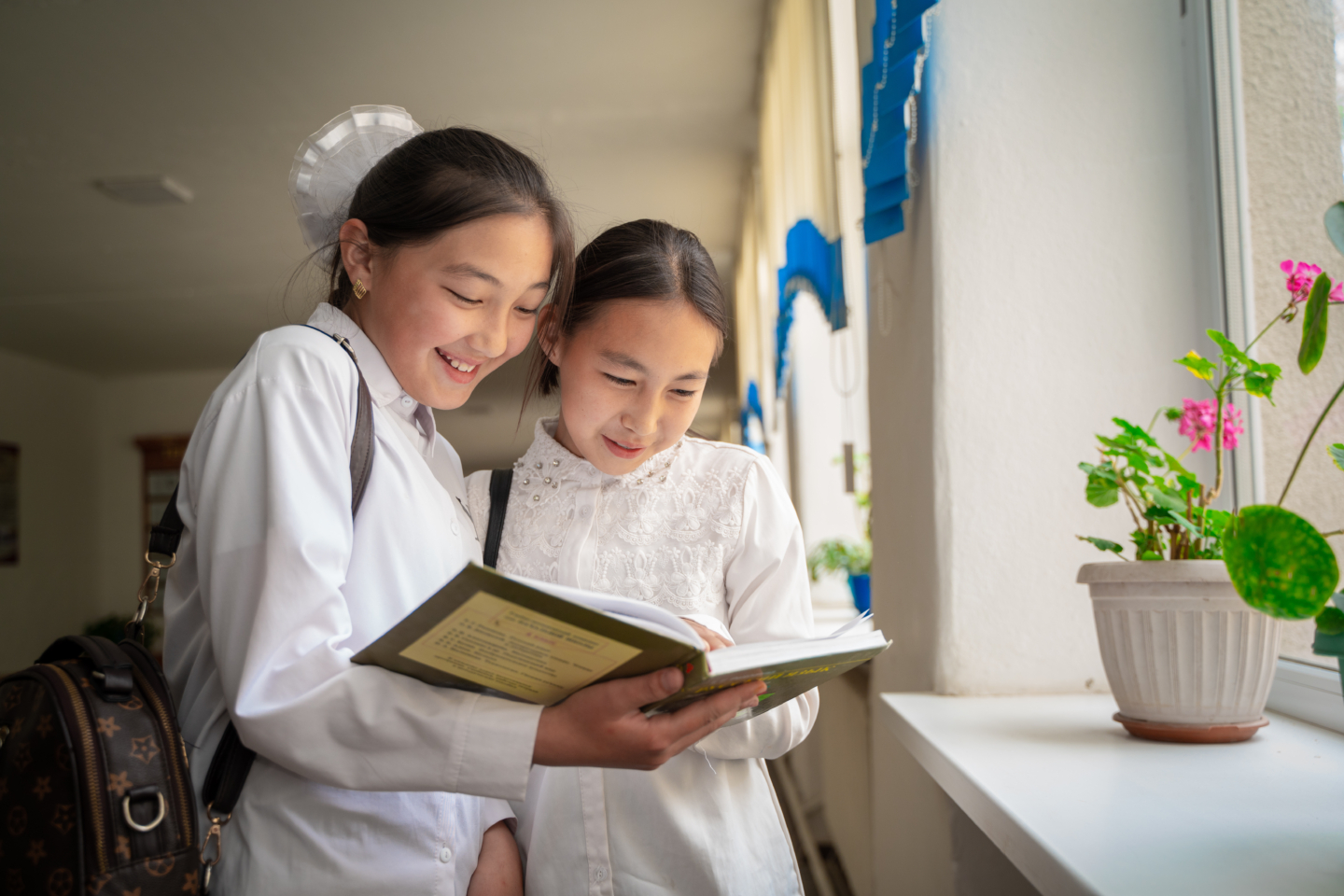
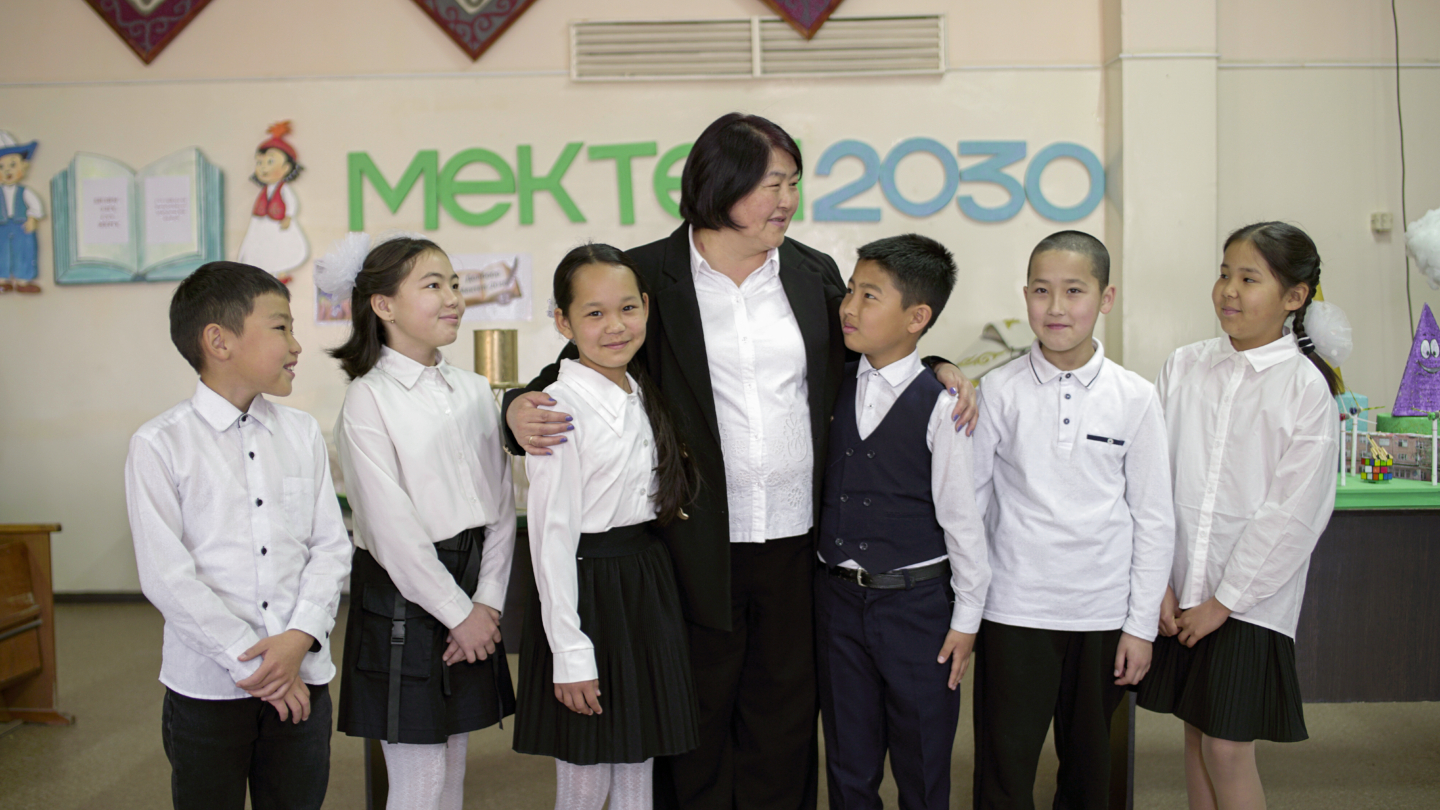
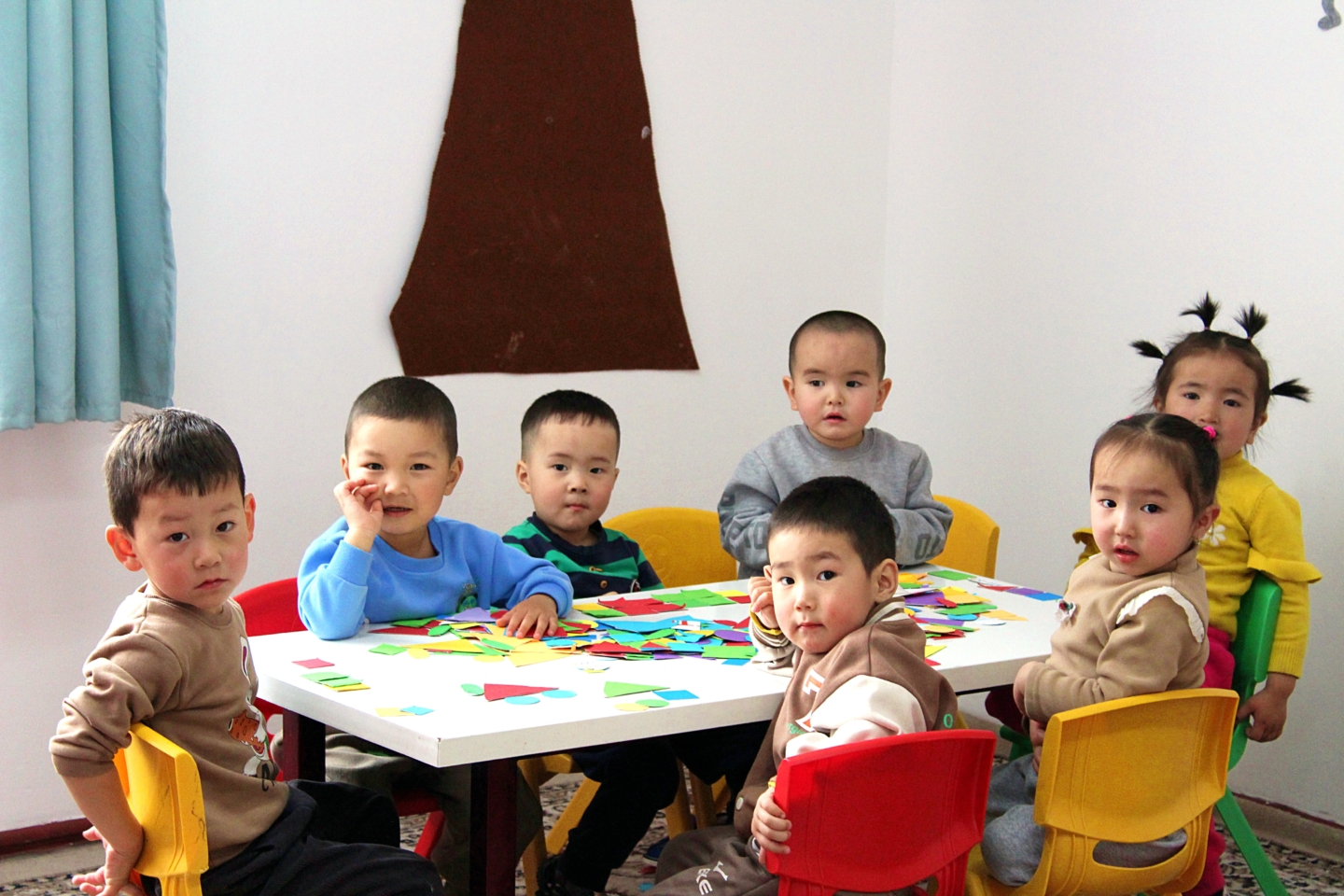
Today, the education system has realised the important role educators play as both implementers of curricula and “change agents of educational frameworks”. Garnering insights from teachers through years of classroom experience, it is harnessing the vital role schools play to prepare Kyrgyz communities to adapt to the challenges presented by climate change.
“Teachers play a leading role in society,” says Jumukova Bubuaisha Jusupovna, a teacher at the Abiybulla Osmonaliyev School in the At-Bashy District of the Kyrgyz Republic. “They can educate students and other members of the community about the global consequences of climate change and its impact on Kyrgyzstan.”
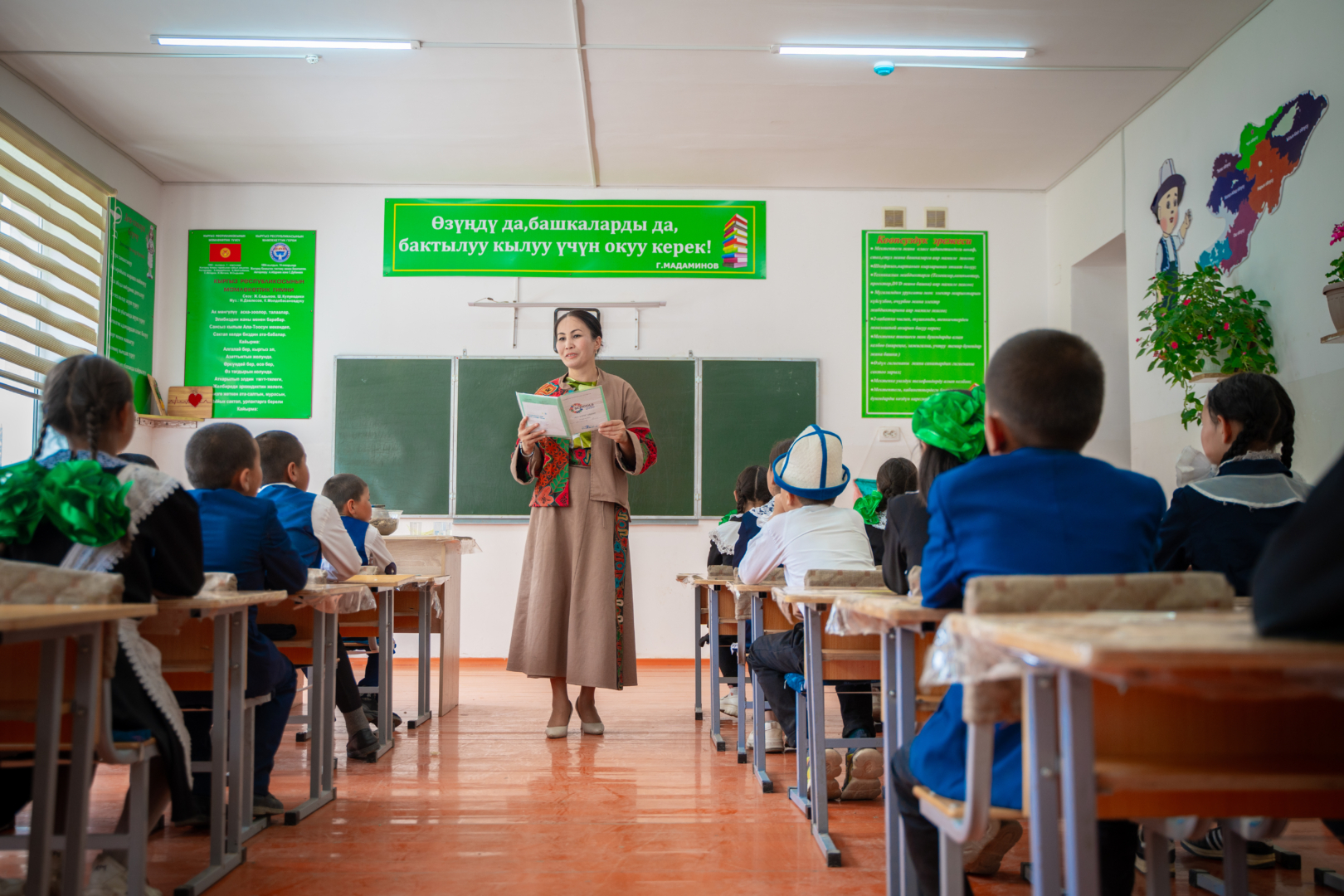
Jusupovna’s views are supported by Samiyeva Nurgul Borubaevna, the Director of Nariste Kindergarten in the Kyrgyz village of Gulcho. Irrespective of what actions are taken to build climate resilience, she says, “teachers come first in educating and knowledge dissemination.”
“[Teachers] know they need to communicate the specifics of natural phenomena and their impact on us, starting from kindergarten… We work with the idea that if we protect nature properly, we can prevent climate damage.”
We work with the idea that if we protect nature properly, we can prevent climate changeSamiyeva Nurgul Borubaevna
Prioritising green education
With a deeply ingrained connection to nature shaped by nomadic culture, ‘green education’ has quickly become a key focus in, and outside of, classrooms across the Kyrgyz Republic.
‘Teacher Leadership for Climate Resilience’ is the theme for the upcoming Schools2030 Global Forum, hosted in Kyrgyzstan’s capital city Bishkek, and the Ministry of Education and Science has, in recent years, issued a decree on nature education – aimed at promoting green learning among preschool and school children.
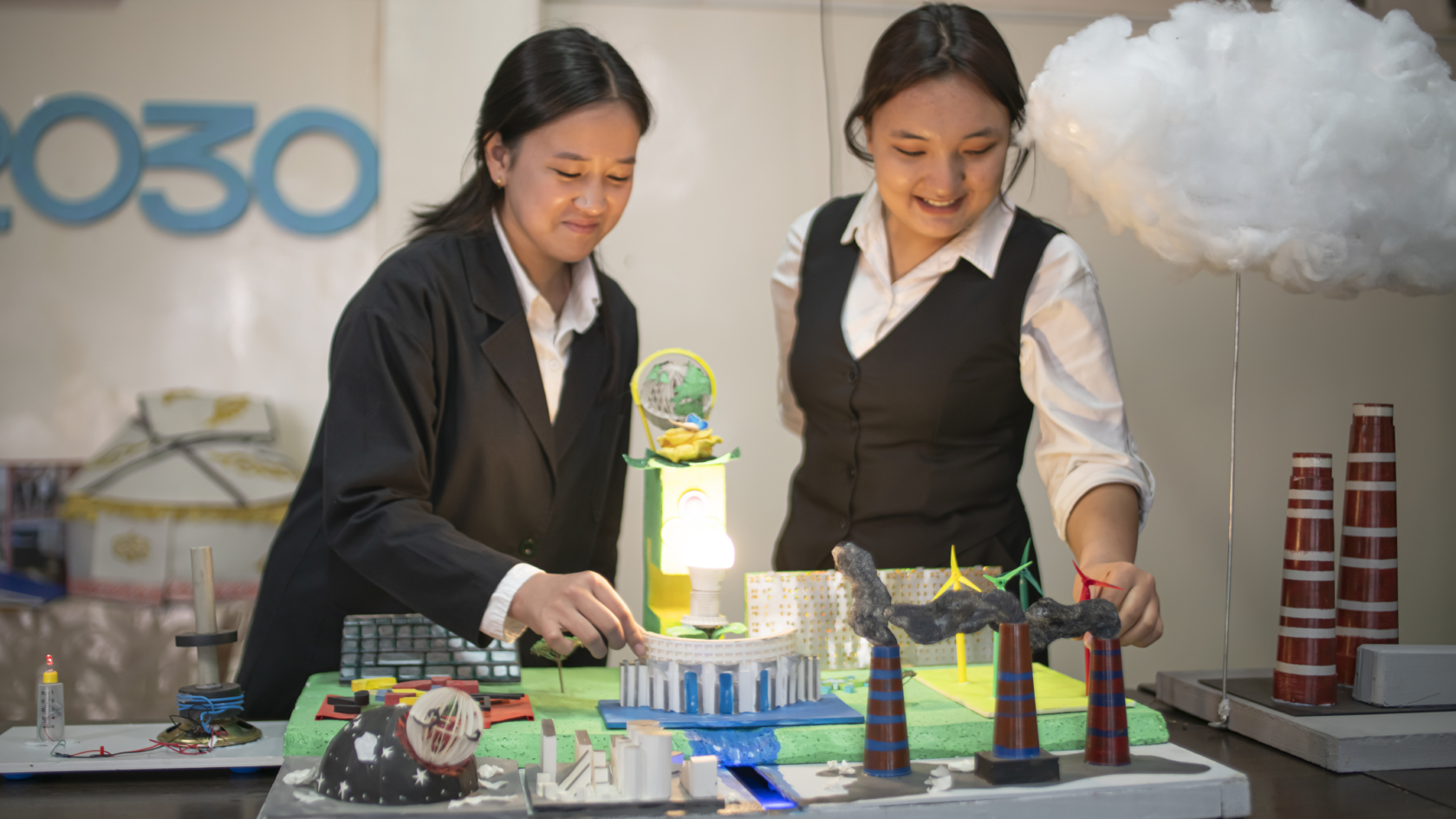
“As we celebrate 100 years of the Kyrgyz education system, we reflect on a century of progress and dedication. It is not just about looking back on our achievements, but also about envisioning the future of education in our country,” says Kasymaliev Muratbek Usonakunovich, Deputy Minister of Education and Science in the Kyrgyz Republic.
“This 100 years milestone honours the legacy of our teachers and the aspirations of our students. We remain committed to further advancing our education system, ensuring it adapts to the evolving needs of our society and the world, and annual Schools2030 Global Forums help us exchange ideas with the global community, learn, and adopt best practices.”
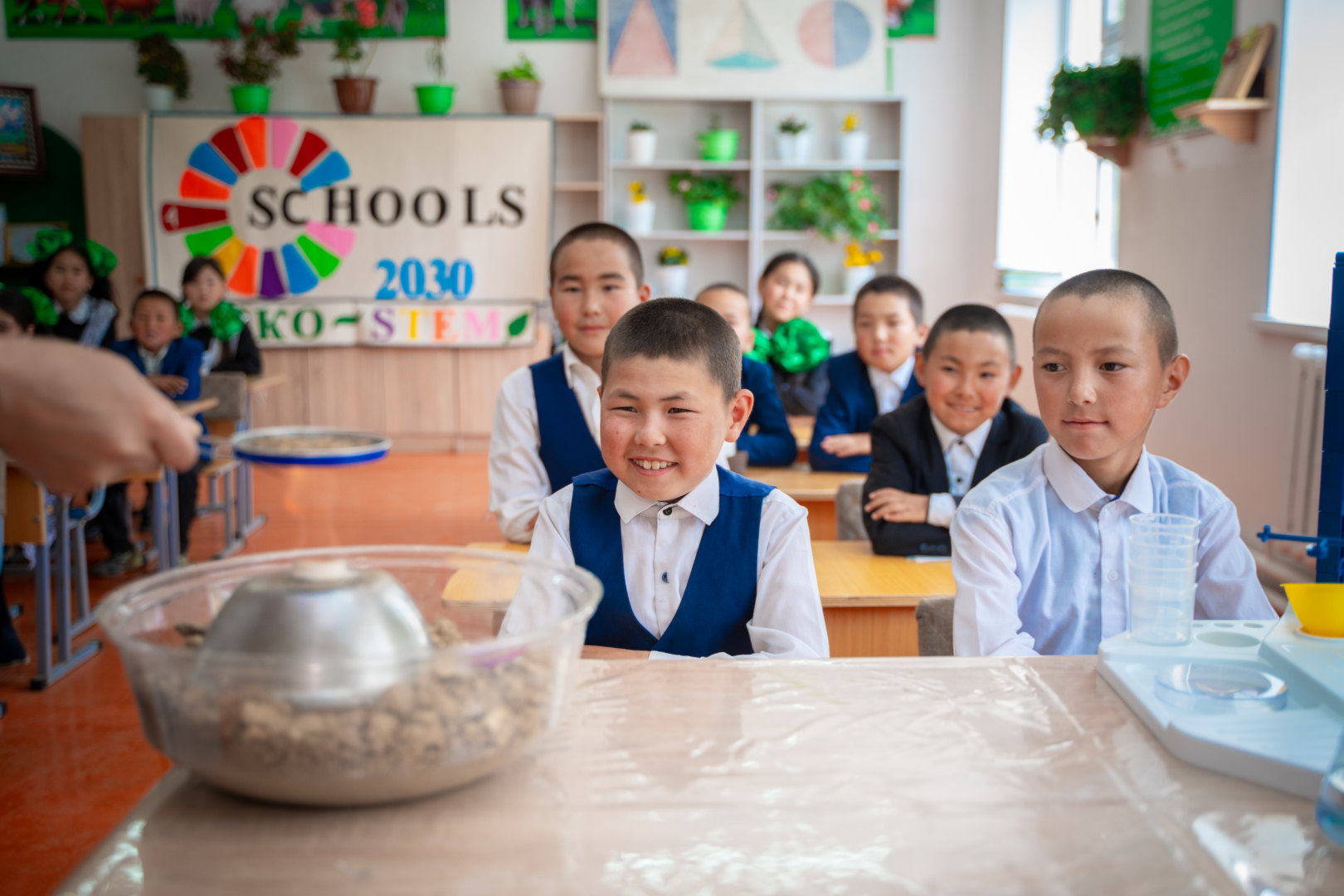
Eco-innovations in the classroom
“Teachers have been focusing on integrating climate-related topics into the curriculum, adopting innovative teaching methods, offering extracurricular opportunities, and engaging with the community,” says Zholdoshbekova.
Innovations range from planting seedlings and trees in preschool gardens, introducing hydroponic gardening into classrooms to develop problem-solving skills and understand mathematical concepts, and initiating waste reduction and recycling programmes to instil a culture of environmental responsibility and collective ownership in children.
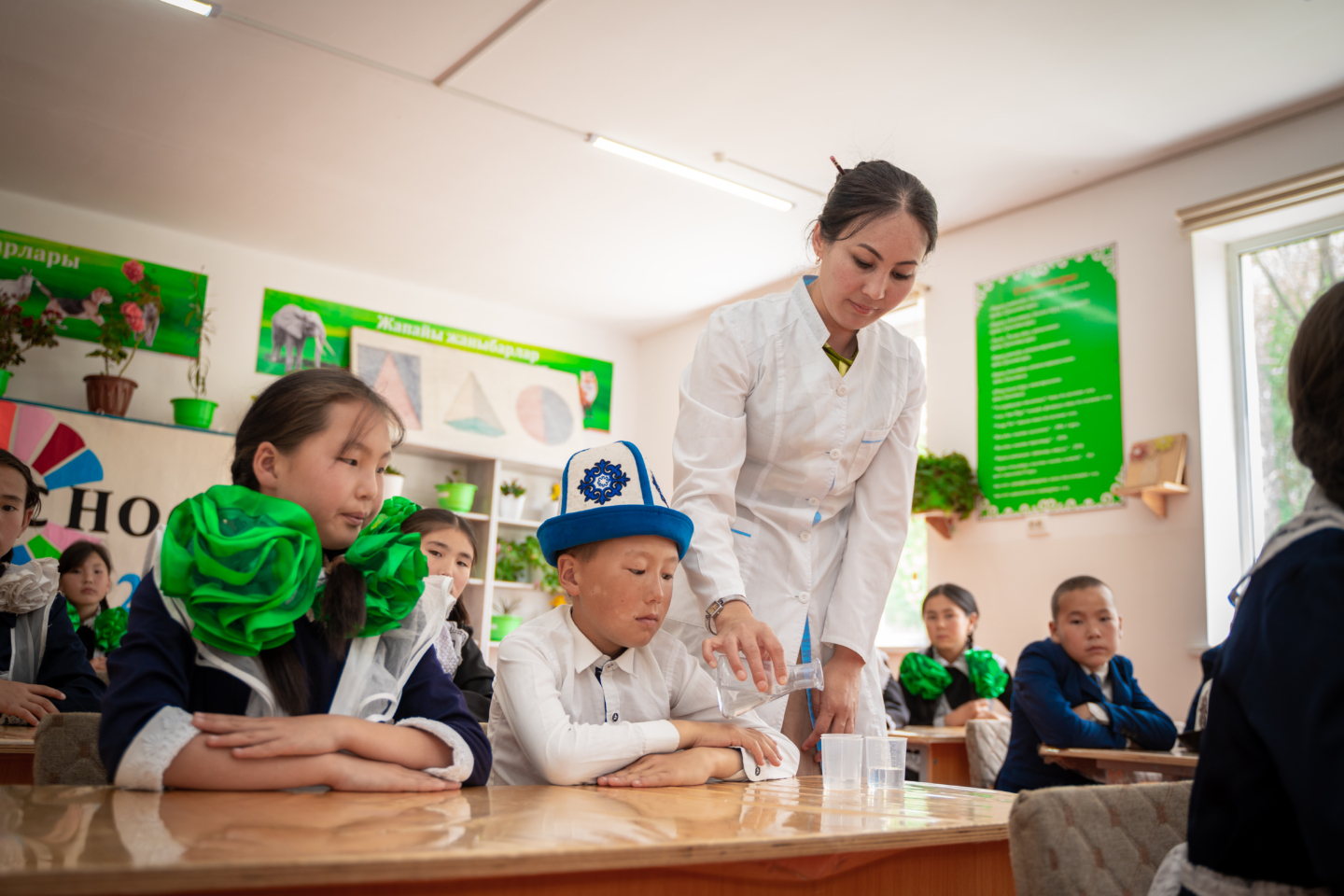
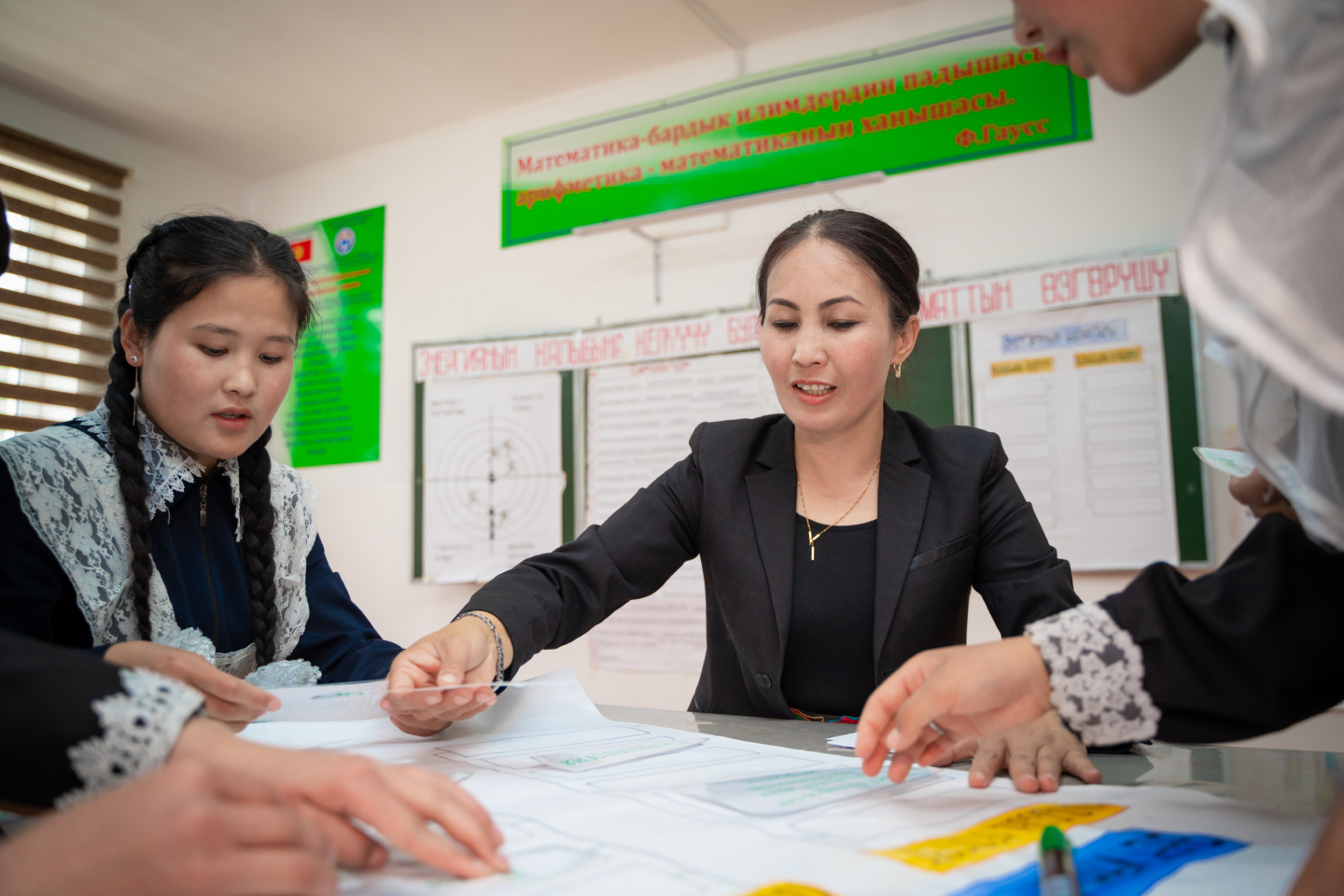
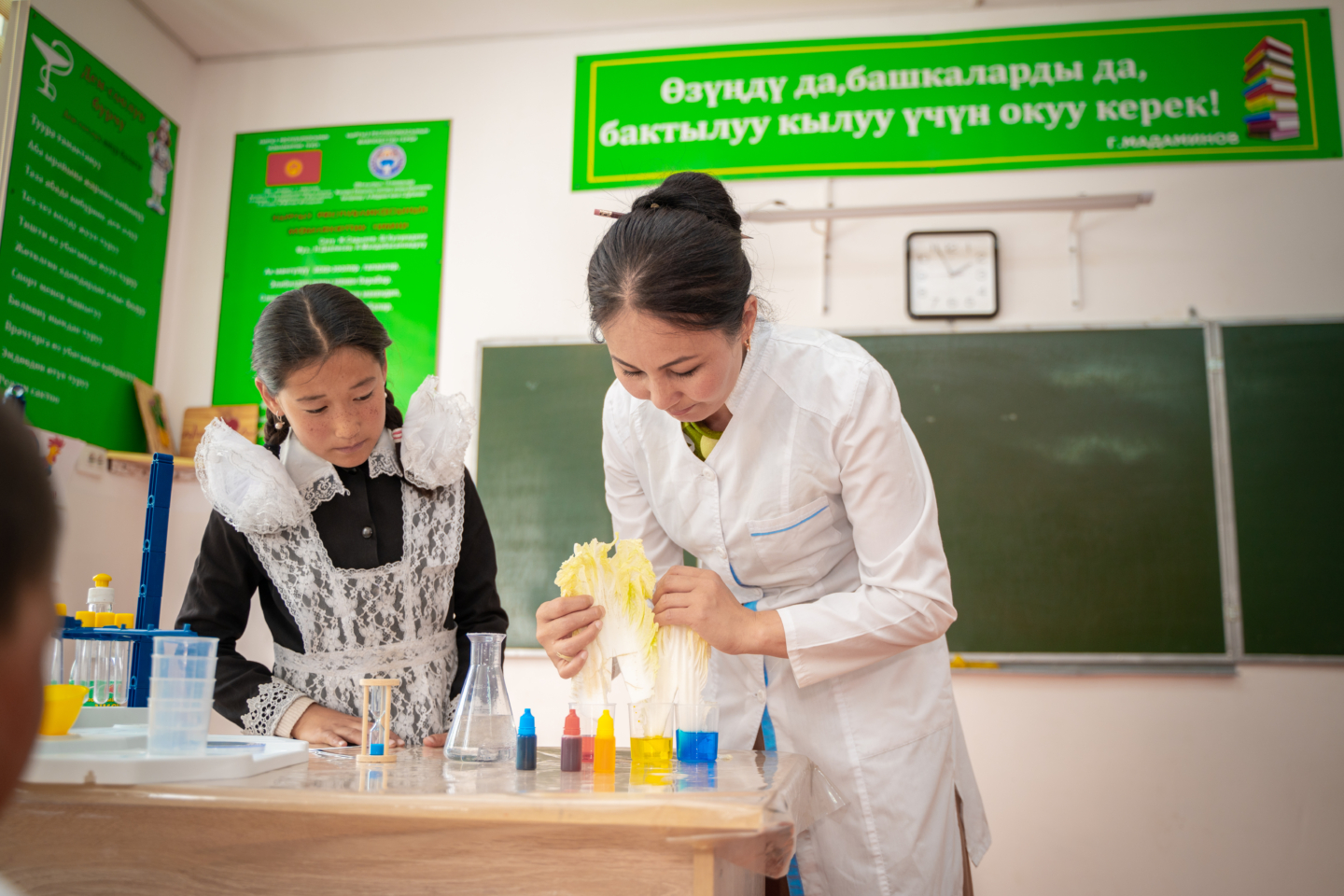
One school in the Kara-Kulzha district has even challenged students to combine their environmental concerns with their need to develop mathematical skills. Addressing poor air quality caused by the burning of fuels for heating during the bitter winter months, students researched different fuel types, calculated carbon dioxide emissions, and discovered an alternative option called “eco-firewood”.
Made from compressed sawdust, leaves, and wastepaper, the students also set up a small hub at their school to produce eco-firewood and run advocacy campaigns. In doing so, they enhanced their mathematical and scientific knowledge and developed a sense of responsibility in combatting climate change.
When asked how teacher leadership might contribute to building climate resilience in the Kyrgyz Republic, primary school teacher Guljamal Kaykiyeva believes that “every activity and innovative lesson makes a teacher a leader”. Even though their efforts may at times, she says, feel like “pouring a drop of water into the ocean”, it is important to keep these green lessons going well into the future. “Success will depend on teachers, parents and [local] communities working together.”
As Kyrgyzstan celebrates 100 years of its education system this year, looking back on its educational journey is not just about celebrating past successes but also about planning for the future.Nazira Zholdoshbekova, Programme Manager for Education at Schools2030 in the Kyrgyz Republic
While rightly celebrated, the Kyrgyz Republic’s education system needs to continuously adapt to address evolving local and global changes and help promote sustainable growth. Confronted by these various structural hurdles, teachers also face a lack of interest and low understanding from parents, and broader community, in the importance of furthering education at home. Limited resources – such as a shortage of kindergartens and inadequate facilities for learners in remote schools – also present a barrier.
Through the partnership between Kyrgyz government and Schools2030, however, these hurdles are being addressed. Recognising that teachers are not merely followers of policy but active drivers of change, Kyrgyz teachers are being placed at the heart of educational reform to enable the successful continuation of the Kyrgyz Republic’s ever-transforming education system in the face of a quickly changing world.
“As Kyrgyzstan celebrates 100 years of its education system this year, looking back on its educational journey is not just about celebrating past successes but also about planning for the future,” says Zholdoshbekova. “Schools2030 is part of this journey, representing collaboration, empowerment and change in the country’s schools.”
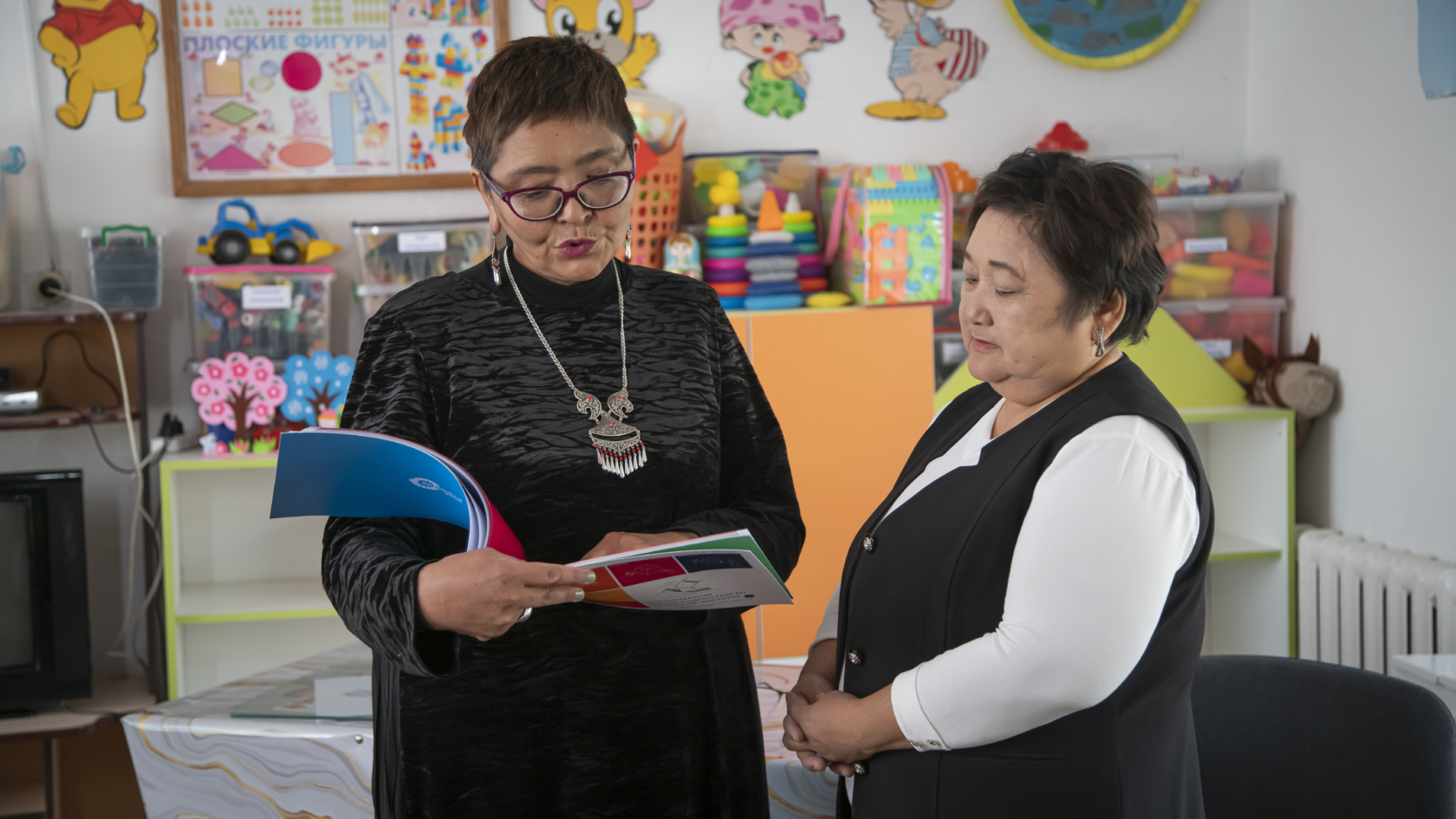
The Schools2030 Global Forum will be live-streamed via the Aga Khan Foundation YouTube Channel and Zoom; please visit Schools2030 Global Forum 2024 to see the full agenda and register for the individual live-streamed sessions.
Related News & Stories

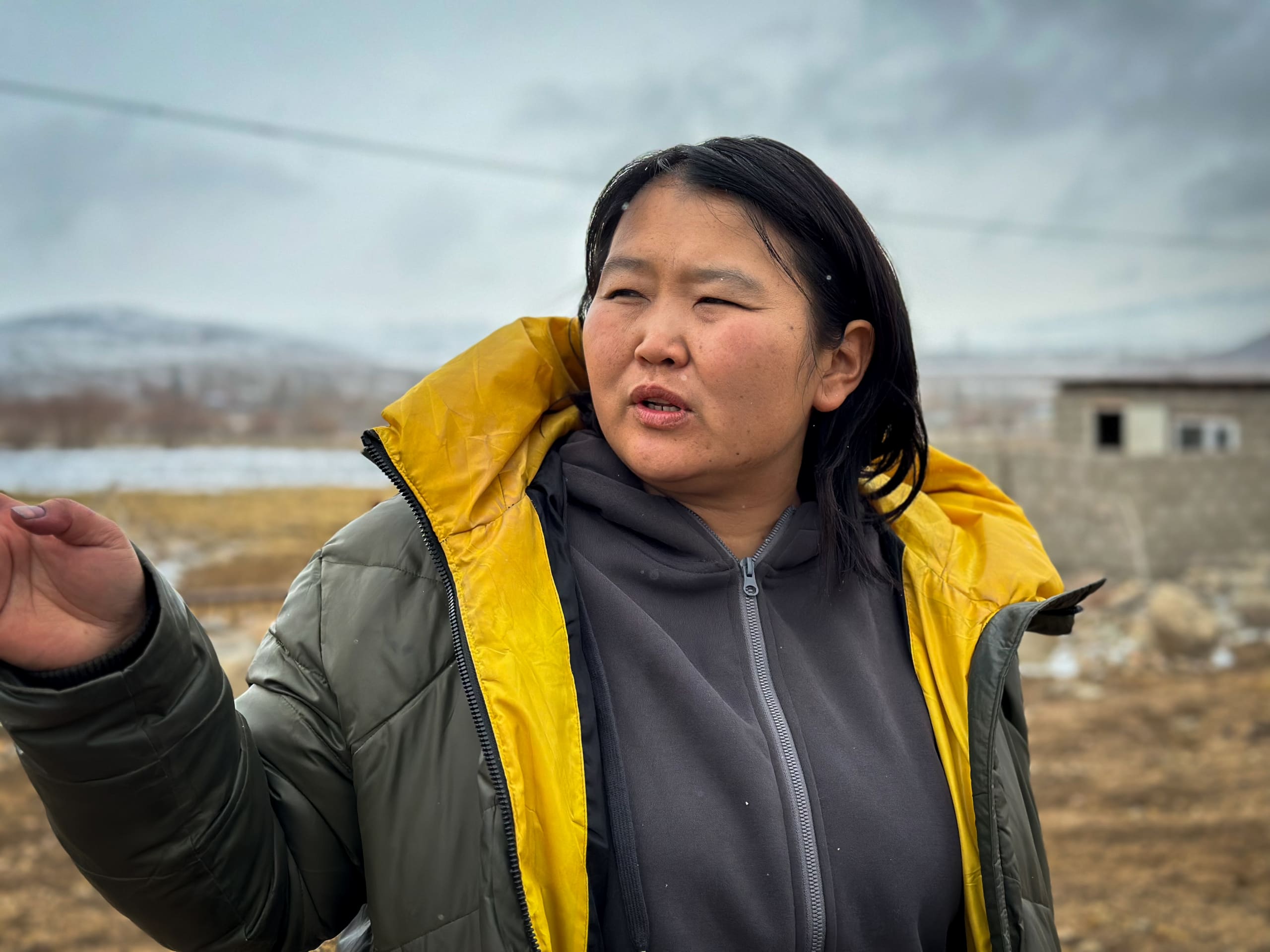
Building climate resilience: How eco-innovators are reducing water stress in the mountainous Kyrgyz Republic

“We haven’t run out of water, but we are going to”

Promoting teacher leadership for climate resilience
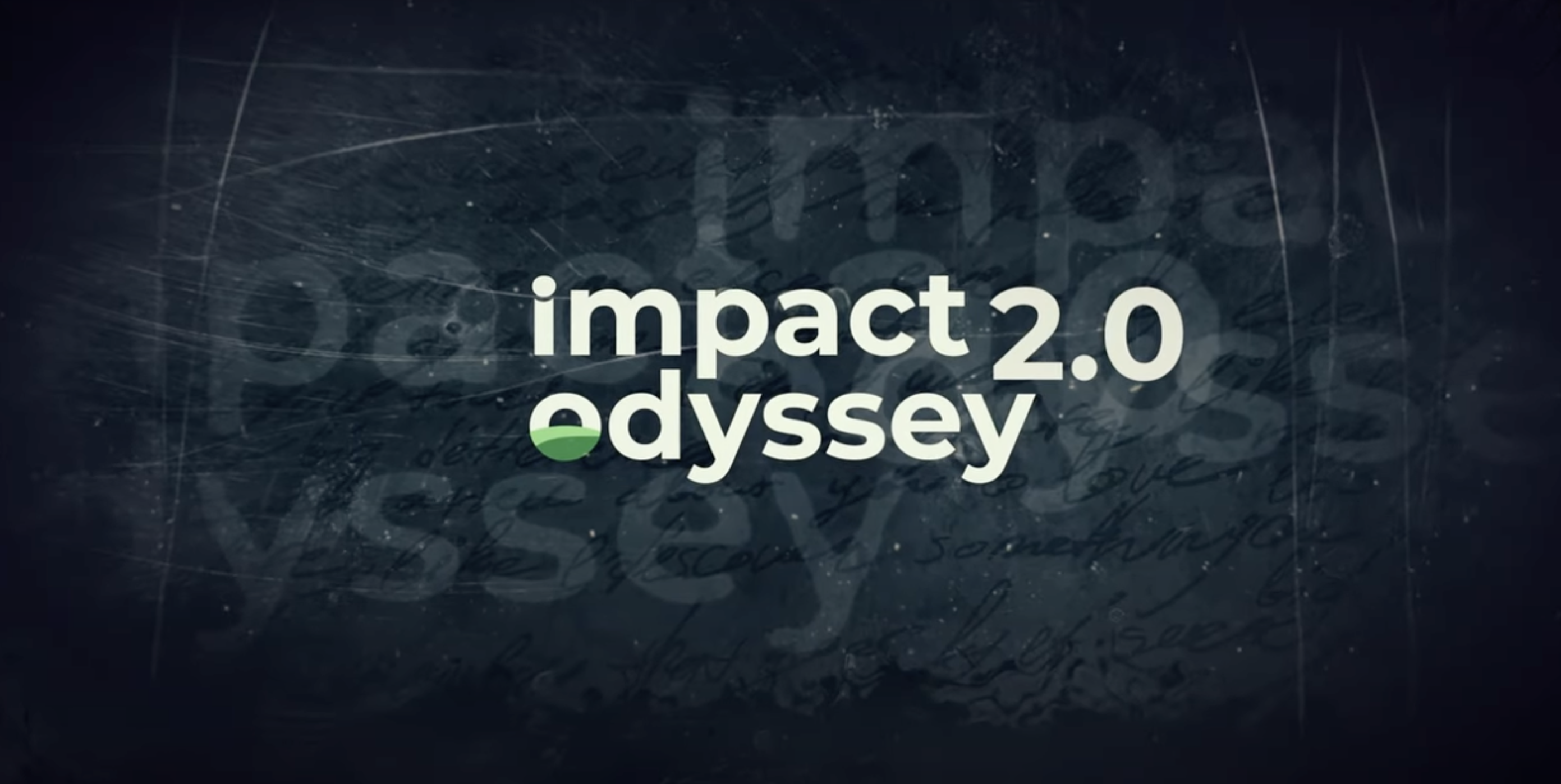
Impact Odyssey 2.0: The Businesses of Tomorrow

“Challenges create capabilities, opportunities, and perhaps even miracles”: Meet Rola, chairwoman and passionate community volunteer

Support our work Your donations are helping us build a future where we all thrive together.